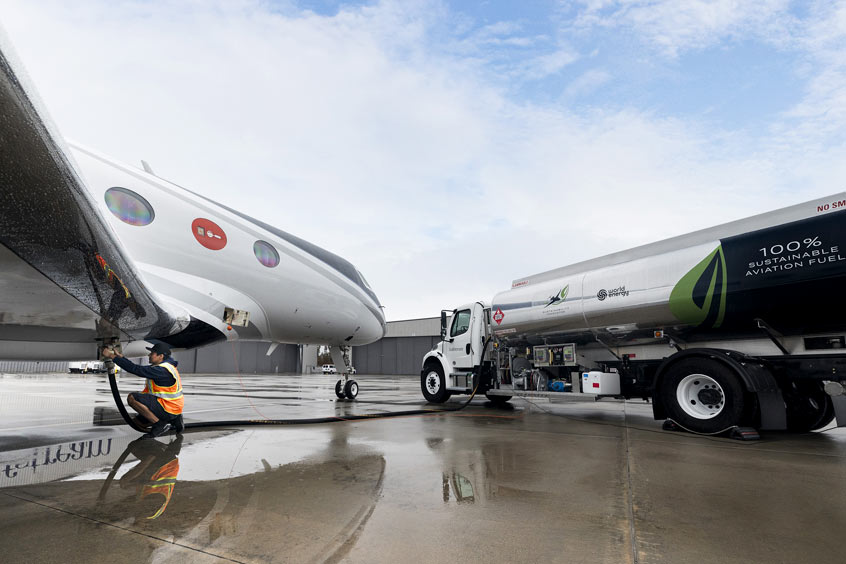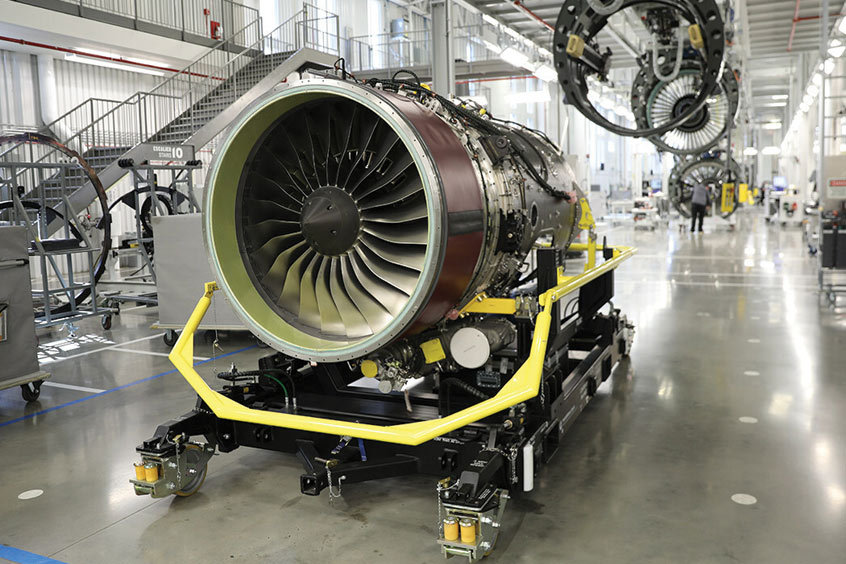 The monthly news publication for aviation professionals.
The monthly news publication for aviation professionals.



Gulfstream has successfully completed the world's first trans-Atlantic flight using 100 per cent SAF. On 19 November, the G600 departed the company's headquarters in Savannah, Georgia and landed six hours, 56 minutes later at Farnborough airport in the UK.
Powered by Pratt & Whitney PW815GA engines, both using 100 per cent SAF, this mission showcases the potential for aviation's future use of renewable fuels, which feature lower carbon, sulphur and aromatics. The data collected from this endurance flight will help Gulfstream and its key suppliers gauge aircraft compatibility with future low-aromatic renewable fuels, particularly under cold temperatures for extended flight durations.
"Gulfstream is innovating for a sustainable future," says president Mark Burns. "One of the keys to reaching business aviation's long-term decarbonisation goals is the broad use of SAF in place of fossil-based jet fuel. The completion of this world-class flight helps to advance business aviation's overarching sustainability mission and create positive environmental impacts for future generations.
"For more than a decade, we have worked closely with Pratt & Whitney Canada to power a new generation of our business jets using the PW800 engine. The G600 entered service in 2019 powered by twin PW815GA engines, and the aircraft has consistently delivered on our promises to our customers. The performance of the aircraft on this flight showcases our commitment to leading the industry in sustainability innovation through new aircraft and propulsion technologies, while promoting environmentally responsible practices."
The SAF was produced by World Energy and delivered by World Fuel Services. It was comprised of 100 per cent hydroprocessed esters and fatty acids (neat HEFA), which has at least 70 per cent lower lifecycle CO2 emissions than fossil-based jet fuel, helping to reduce aviation's impact on climate. Additionally, this zero added aromatics fuel has a reduced impact on local air quality and very low sulphur content, which can reduce non-CO2 environmental impacts.
"Gulfstream continues to break new ground in the sustainable aviation space, and we applaud it for completing this mission as we work to validate the compatibility of our engines with unblended SAF," says P&WC vice president, sales and marketing Anthony Rossi. "Collaborating with airframe manufacturers is an important part of our long-standing efforts to ensure SAF compatibility across all our engines, which have already been certified to operate with up to 50 per cent SAF blends for more than a decade. With this trans-Atlantic flight, we are effectively demonstrating both engine and aircraft functionality in a fully operational setting to support future specifications for 100 per cent SAF."
Other key partners supporting this milestone include Honeywell, Safran and Eaton.
"We'd like to thank all our partners for their help in making this milestone flight happen, and for their ongoing partnership in collaborating with the extended SAF community to champion the aviation industry's path to 100 per cent SAF usage," adds Burns.
This flight advances Gulfstream's continuing work to lead the industry's sustainability efforts.